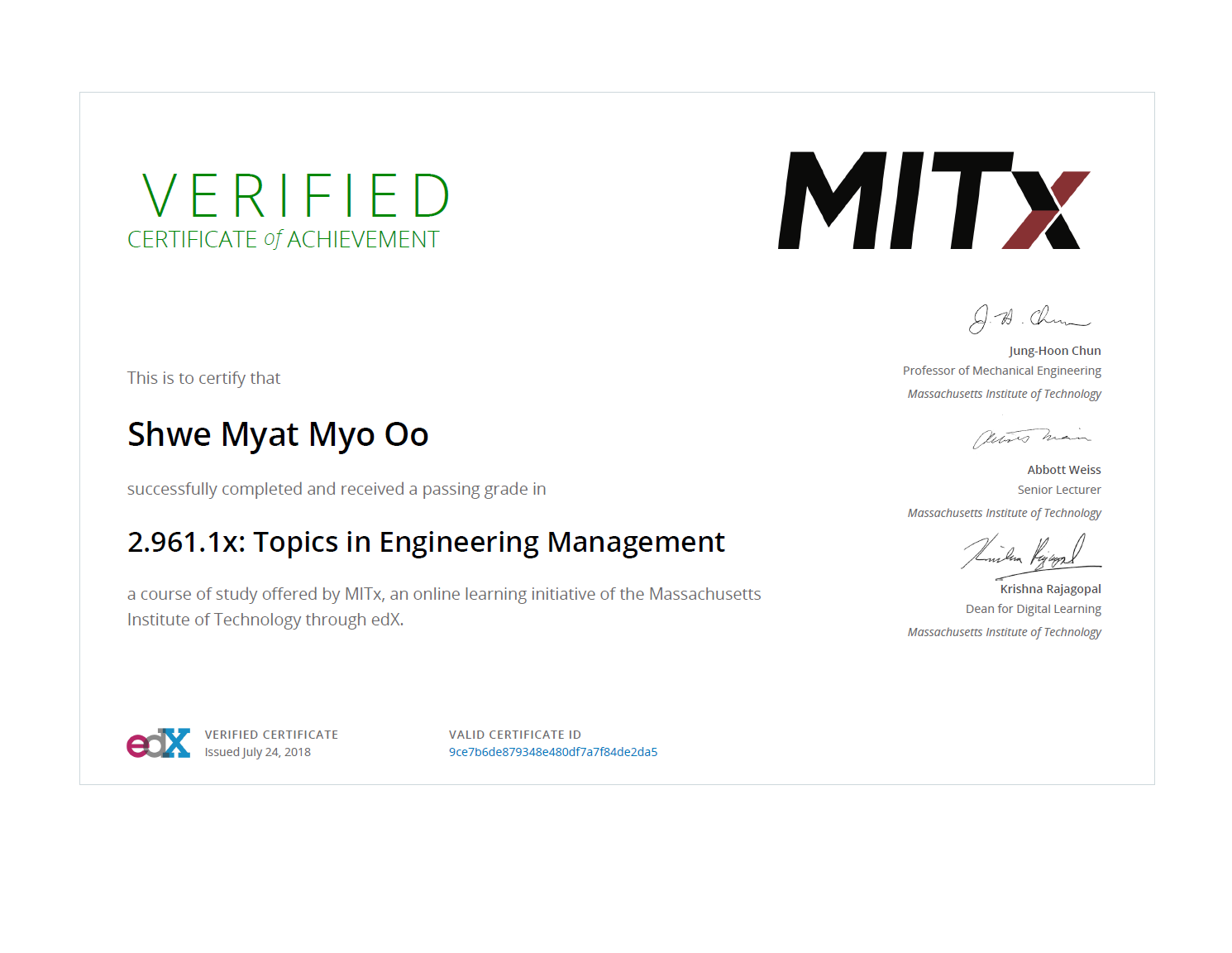Hello again! Since my certificate from my 3rd MITx Micromasters course is finally out, I think it’s about time I shared some takeaways from it as well as what I think are a few relevant insights regarding engineering management and entrepreneurship in general.
To me, this particular course was a little easier that the prior two courses, primarily because I had taken very similar courses as an undergrad for my Entrepreneurship certificate but also due to Professor Jung-Hoon Chun’s excellent clarifications for the essentials of accounting principles. Although the course is nominally focused on engineering management principles for manufacturing enterprises and new ventures, I would definitely advise anyone interested in how businesses and corporations are generally run to check out this course either as a quick refresher or to understand why certain companies behave the way they do. The course covers business planning, principles of sales and marketing, financials and related analytical tools (in a refreshingly simple way), flexibility in planning and design, and some basic tenets of intellectual property (in the United States). Ventures not based explicitly on manufacturing, such as Amazon and Alibaba, are covered as examples as well.
The most important things I learned from this course (and some of my relevant experiences) are:
- The plan is nothing, but the planning is everything. Although this is a lesson known by several figures throughout history, I now know the specific reason. The plan is nothing because initial plans fail so often–and the reason they fail is that they are based on forecasts available during the planning. However, circumstances and initial conditions change so quickly that forecasts are inaccurate, and the magnitude of inaccuracy increases rapidly the farther into the future a forecast is made. Planning, however, is still important because we can introduce a level of flexibility to our plans that can make them responsive to a forseeable set of scenario changes, and while planning one gains a thorough enough understanding of the current situation to quickly react to unforeseen scenario changes while focusing on a known set of final objectives.
- Financials are underrated. After a business plan is known and implementation has started, the importance of knowing your numbers cannot be understated–mastering the principles of managerial accounting can go a long way into understanding the nature of your organization and the decision making process within it, especially if you come from a technical background. Financial accounting for tax audits and accountants may be a little different from managerial accounting, but it is still important to keep a finger on the pulse (so to speak) to monitor the financial health of your team/organization and prevent fraud (intentional or otherwise) early on. The decision making skills taught in managerial accounting are also a prime asset for you whether you’re managing your own personal finances or end up leading an organization in the future.
- Legal perceptions of intellectual property may vary vastly depending on where you are. Although I have been exposed to my fair share of lessons both in this course and at GT regarding US intellectual property law and the philosophy behind it, it is important to keep in mind that these laws and principles are not universally applicable, and you may face difficulty in protecting your IP if the appropriate legal infrastructure does not exist or is not enforced. In Myanmar, for example, new laws regarding intellectual property have only been introduced to parliament this year (2018).
As with practically all EdX courses, the course is free to audit with some cost to pursue a verified official certificate–please consider taking a look if you get a chance. Also, if you have an anecdote regarding engineering management and/or entrepreneurship, please let me know so we can start some productive discussions!
Signing off,
-Shwe

